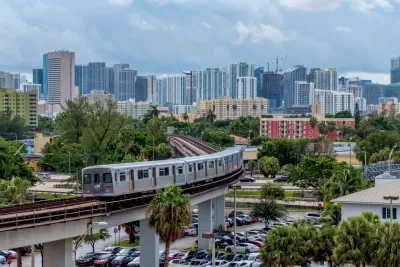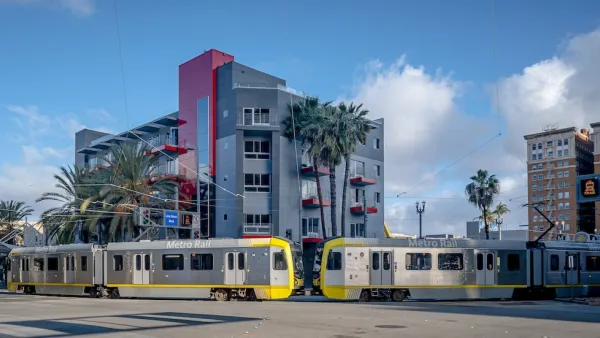No longer tied to minimum parking requirements, housing developers are starting to shift to more walkable, transit-oriented projects.

Developments designed to discourage private car ownership are being built in some traditionally car-oriented parts of the country, serving as potential models for future car-light development.
According to an article by Patrick Sisson in Bloomberg CityLab, “A confluence of trends has made such projects both more financially viable and marketable — especially in the South and Sun Belt, where zoning rules are often more permissive but car dependency and the urge to sprawl can be just as powerful.”
With parking spots costing tens of thousands of dollars apiece to build, developers are finding it more attractive to build communities without sprawling parking lots. “The Terner Center for Housing Innovation at the University of California at Berkeley estimated that parking adds up to $36,000 per unit of new housing built in the state.”
Sisson describes developments in Charlotte, Tempe, and Houston that are drastically reducing parking and creating walkable and transit-oriented spaces. A proposed 17-acre development in east Houston by Concept Neighborhoods with little on-site only became possible after the city relaxed parking requirements in some parts of town, letting developers decide how much parking to build. In Miami, a new high-rise development next to the Douglas Road Metrorail station touts public amenities and ground-floor retail.
FULL STORY: Car-Free Living Takes Off in Car-Centric Cities

Analysis: Cybertruck Fatality Rate Far Exceeds That of Ford Pinto
The Tesla Cybertruck was recalled seven times last year.

National Parks Layoffs Will Cause Communities to Lose Billions
Thousands of essential park workers were laid off this week, just before the busy spring break season.

Retro-silient?: America’s First “Eco-burb,” The Woodlands Turns 50
A master-planned community north of Houston offers lessons on green infrastructure and resilient design, but falls short of its founder’s lofty affordability and walkability goals.

Test News Post 1
This is a summary

Analysis: Cybertruck Fatality Rate Far Exceeds That of Ford Pinto
The Tesla Cybertruck was recalled seven times last year.

Test News Headline 46
Test for the image on the front page.
Urban Design for Planners 1: Software Tools
This six-course series explores essential urban design concepts using open source software and equips planners with the tools they need to participate fully in the urban design process.
Planning for Universal Design
Learn the tools for implementing Universal Design in planning regulations.
EMC Planning Group, Inc.
Planetizen
Planetizen
Mpact (formerly Rail~Volution)
Great Falls Development Authority, Inc.
HUDs Office of Policy Development and Research
NYU Wagner Graduate School of Public Service




























